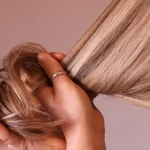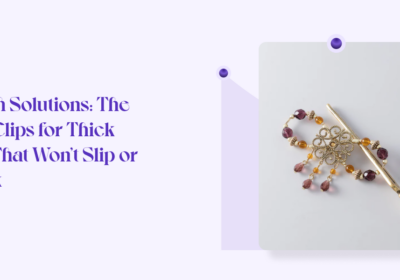
How to Avoid a Dry, Itchy Scalp
A dry, itchy scalp can be an uncomfortable and frustrating problem that affects many people. Not only is it uncomfortable, but it can also be embarrassing and leave you feeling self-conscious. There are many different causes of a dry, itchy scalp, including harsh shampoos, scalp infections, and even stress.
In this blog post, we will discuss some of the most common causes of a dry, itchy scalp and provide you with some tips on how to avoid this problem.
- Moisturize with essential oils.
One of the most effective dry itchy scalp treatments is to moisturize with essential oils. Essential oils are known for their ability to nourish and soothe the scalp, providing relief from itchiness and dryness. To use essential oils as a moisturizer, mix a few drops of your preferred oil with a carrier oil like coconut oil or jojoba oil. Apply the mixture directly to your scalp, massaging it gently. Leave the oil on your scalp for at least 30 minutes before washing it off with a gentle shampoo. Repeat this treatment once or twice a week to keep your scalp moisturized and healthy.
Some popular essential oils for dry itchy scalp treatment include tea tree oil, lavender oil, peppermint oil, and rosemary oil. However, it’s important to do a patch test before using any essential oil to make sure you’re not allergic to it.
- Use a gentle shampoo sparingly.
If you’re experiencing a dry, itchy scalp, it’s important to pay attention to the products you’re using on your hair. One simple but effective dry itchy scalp treatment is to use a gentle shampoo sparingly. Harsh shampoos can strip your scalp of its natural oils, leading to dryness and irritation. Look for shampoos that are specifically formulated for dry or sensitive scalps, and avoid those that contain sulfates or alcohol. It’s also important not to overwash your hair, as this can further dry out your scalp.
Try washing your hair every other day or every two days, and use a dry shampoo in between washes if necessary to absorb excess oil. By using a gentle shampoo sparingly and avoiding harsh, drying ingredients, you can help soothe and prevent a dry, itchy scalp.
- Avoid excessive heat styling.
Excessive heat styling is a common cause of dry and itchy scalp. Using hot tools like blow dryers, curling irons, and straighteners can strip the scalp of its natural oils and moisture, leaving it dry and irritated. To avoid this, it is recommended to limit heat styling as much as possible. If you must use heat, be sure to use a heat protectant spray or serum to minimize damage. Also, avoid using hot tools on wet hair, as this can cause more damage.
Consider using alternative styling methods like air drying or using rollers to achieve your desired look. Incorporating these habits into your dry itchy scalp treatment can help to alleviate discomfort and promote a healthier scalp.
- Shield from harsh weather conditions.
One of the most crucial aspects of dry itchy scalp treatment is to shield it from harsh weather conditions. This is because cold, dry air can sap your scalp of moisture, causing it to become dry and itchy. To protect your scalp from harsh weather conditions, it is advisable to wear a hat or scarf when you go outside during cold weather. Additionally, you should avoid exposing your scalp to direct sunlight for prolonged periods, as this can cause sunburn and further dryness.
Covering your scalp with a hat or scarf also helps prevent the buildup of dirt and sweat, which can exacerbate dryness and itching. By taking these simple steps, you can help protect your scalp from the elements and maintain healthy, moisturized hair.
- Consult a dermatologist if necessary.
If you are struggling with a persistent dry, itchy scalp despite following basic dry itchy scalp treatment methods, it may be time to consult a dermatologist. A dermatologist can help diagnose the underlying cause of your dry, itchy scalp and recommend a targeted treatment plan to alleviate your symptoms. They may suggest prescription strength shampoos, topical creams, or oral medications depending on the severity of your condition. Additionally, they can provide lifestyle recommendations to avoid triggers that may be exacerbating your symptoms. Don’t hesitate to reach out to a professional if you’re experiencing discomfort and seeking relief from a dry, itchy scalp.

















